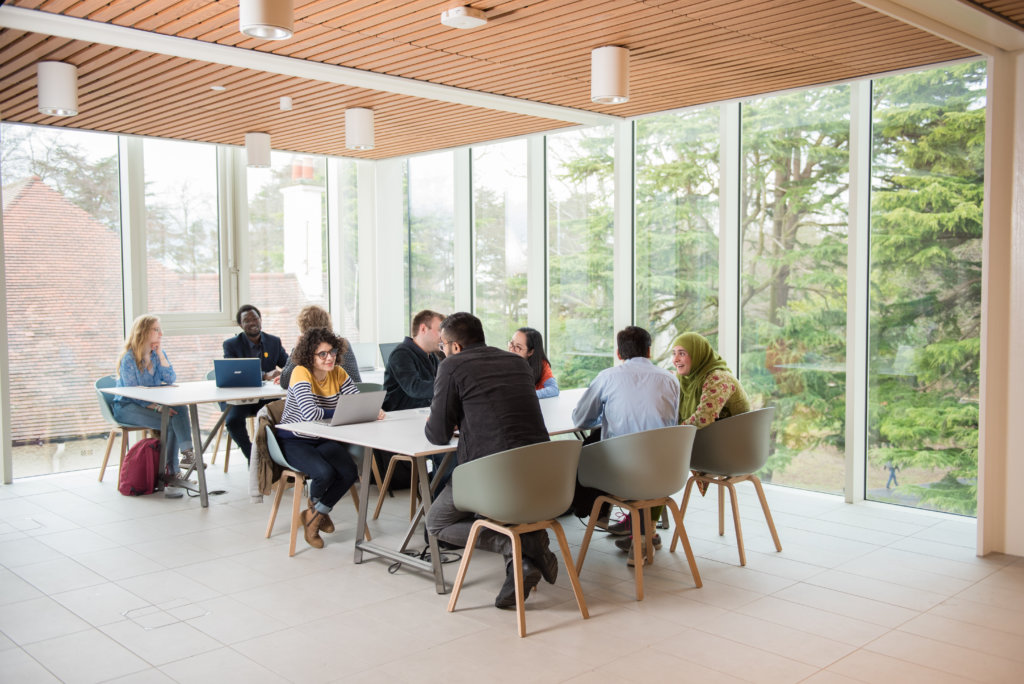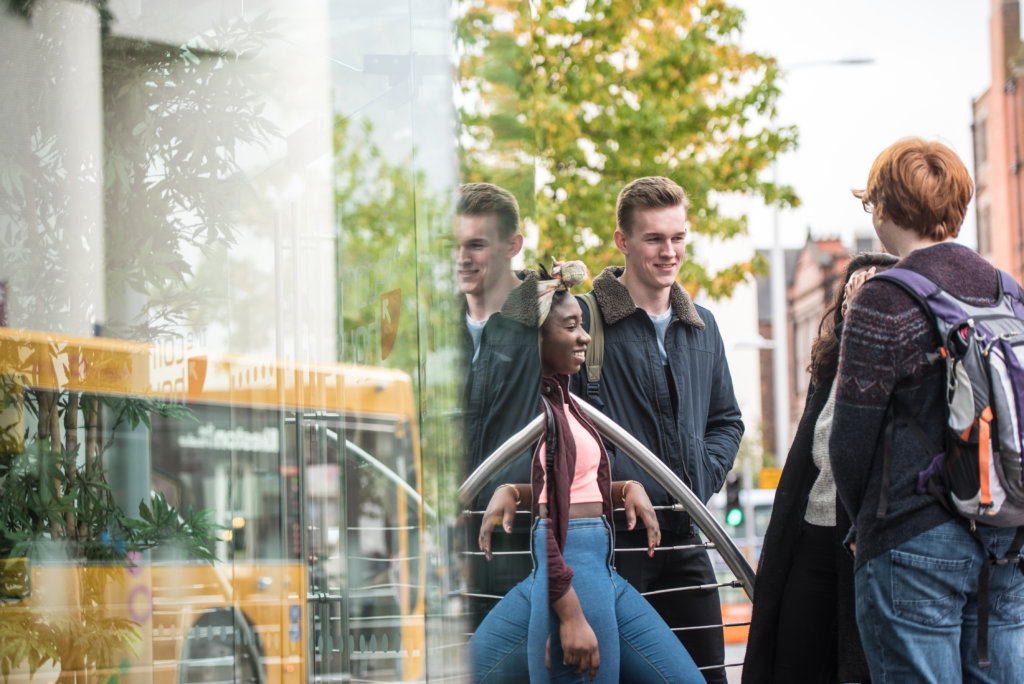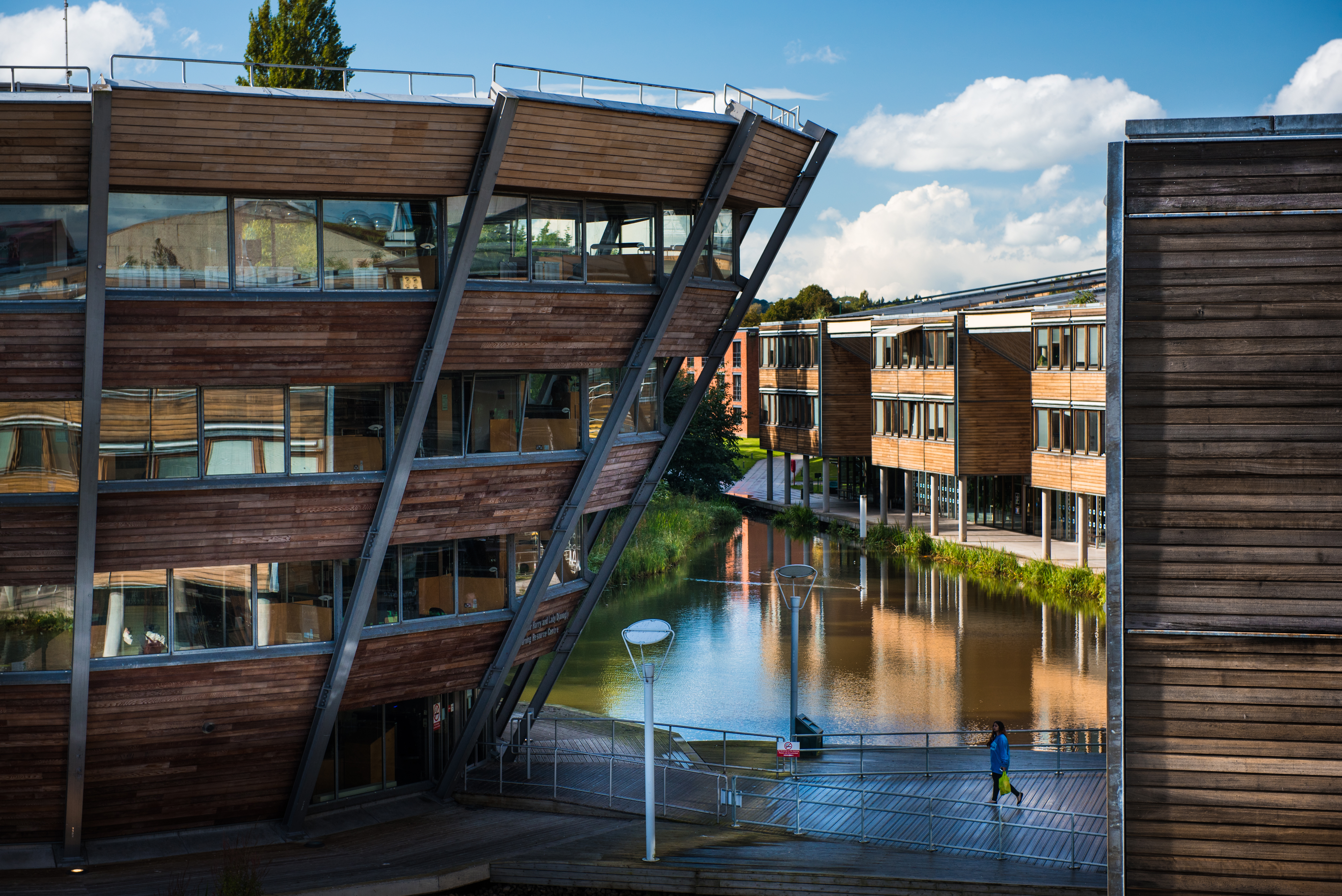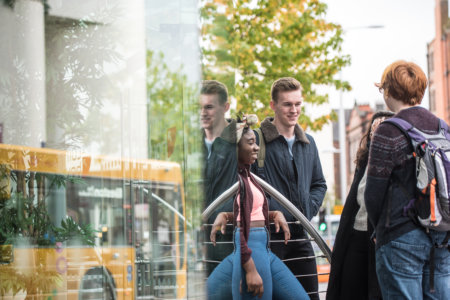Fulfiling, productive and memorable – that’s how Remus Wong would describe his three-year LLB law degree at the University of Nottingham. He found it exciting to learn from the world’s elite legal scholars that educate tomorrow’s academics and practitioners today to make a meaningful difference in society.
“I chose Nottingham to study law as I wanted to mingle with the brightest and learn from the best. Nottingham has some of the world’s leading academics and some of the brightest professors that I’ve ever met,” Wong shares.
Take, for example, Dr. Ozlem Ulgen. As an Associate Professor in Law, she specialises in public international law, moral and legal philosophy covering weapons law and international humanitarian law, and the law, ethics and regulation of artificial intelligence (AI) and robotics.

Research-led teaching paired with small tutorial groups helps to deliver a student-focused learning environment. Source: University of Nottingham
“In the fast-moving domain of AI and robotics, my work is crucial for establishing rules and a regulatory environment to ensure ethical and legal development, use, and deployment of AI and robotic systems,” she says. “My work seeks to protect human agency and rights, and to ensure attribution of legal responsibility for when things go wrong with these systems. This benefits society, industry, and government and contributes towards global justice, peace, and welfare.”
At the University of Nottingham, quality trumps quantity. Tutorial groups are limited to groups of six to eight students who discuss pre-arranged questions and any other problems with their tutor. Pair this with the active involvement of all academic staff in tutorial teaching and students will benefit from a friendly, individualised, and student-focused environment.
As a result, LLB students experience the highest standards of intellectual rigour in research-led teaching. For instance, Ulgen can explain to their students the ramifications of AI and robotics development – whether it is data protection and privacy rules under European law or the importance of international law-making to regulate cross-border matters – in her class.
That’s something students like Conor Thompson appreciates. “If I send them an email, they are going to reply. If I send in a formative assessment, they are going to mark it and get back within a really good amount of time,” he says.
https://www.youtube.com/watch?v=xQhq6bV56Co
Vibrant and active student societies
How else does the School of Law stand out from other law schools in the UK? Opportunities. With over 300 student groups to choose from, law students will find a society that suits their interests – whether it is the Law Society, Bar Society, Pro Bono Society, Mooting Society, the European Law Students’ Association, or the Advocate.
The Law Society collaborates closely with reputable law firms to provide members with excellent career and networking opportunities — these include trips to “magic circle” law firms and the Inns of Court. Those who want to polish their oral and written advocacy can participate in mooting competitions hosted by the Mooting Society. Consider joining the Advocate if thought-provoking journalism captures your interest.
These student societies also regularly top the LawCareers Student Law Society awards from 2019 to 2021 for outstanding efforts in a particular category. For example, the Pro Bono Society was recognised as the best pro bono society in 2020 and 2021 for being the largest student-run organisation of its kind in the UK.
Diverse career opportunities
To produce career-ready graduates, the Careers and Employability Service team works with students and guides them to improve their employability through mock interviews, application advice, and many more. Faculty placement programmes are adapted to the academic timetable, allowing students to acquire substantial work experience.
Those eager to maximise their time in law school can secure themselves a paid placement – which will take place after the end of the second year of studies before students begin their final year. Upon successful completion of the placement, students will be awarded “with a Placement Year” at the end of their degree title.
A final year optional module titled “Law in Practice” allows students to arrange and complete a 50-hour placement after their second year of studies. They can use relevant law-related work experience with a solicitor’s firm or non-profit for academic credit. Students can also interact with law firms and providers of the Bar Professional Training Course and Legal Practice Course at the Law Careers Fair.

The law student societies often organise networking events, visits to top law firms and Inns of Court. Source: University of Nottingham
A global perspective
Undergraduate students can choose to study in Australia, Canada, China, Europe, New Zealand, South Africa, Singapore or the US. They can select from the broadest range of partner institutions of any study abroad programmes in the UK
The direct-entry international degree programmes add a fourth year to the three-year LLB or BA(Law) programmes. Students apply to transfer in their second year here, and if successful will spend their third year at the partner institution, returning to Nottingham for their fourth and final year.
With great features like these, it’s little wonder why the University of Nottingham is a member of the prestigious Russell Group, ranked 11th in the UK (The Complete University Guide 2023) and top 60 worldwide (Times Higher Education World University Rankings 2022) for law, and 85.9% of undergraduates from the School of Law secured graduate level employment or further study within 15 months of graduation (HESA Graduate Outcomes).
Choose the School of Law and you stand to have a transformative legal education. Learn more about how you can begin your undergraduate studies here.
Follow the School of Law, University of Nottingham on Facebook and Twitter.













